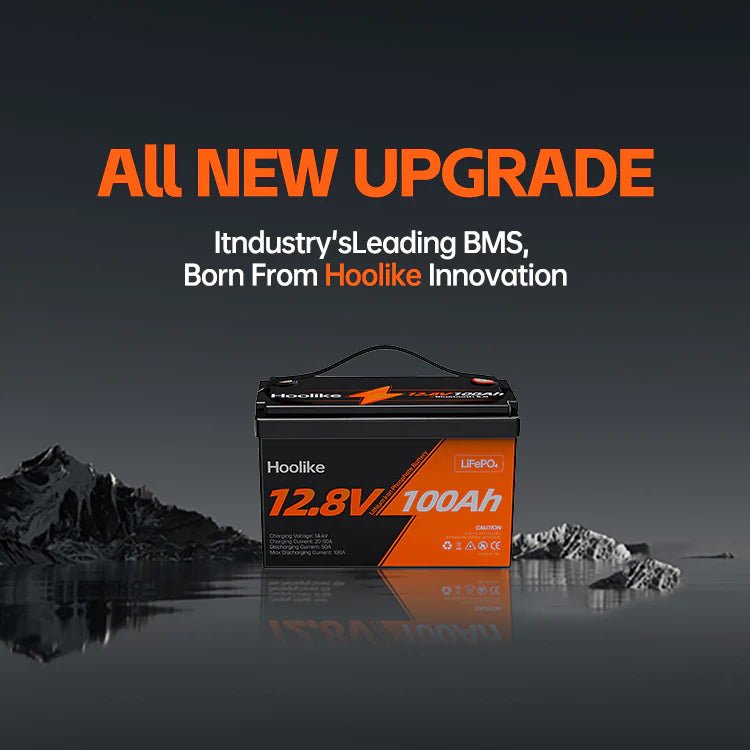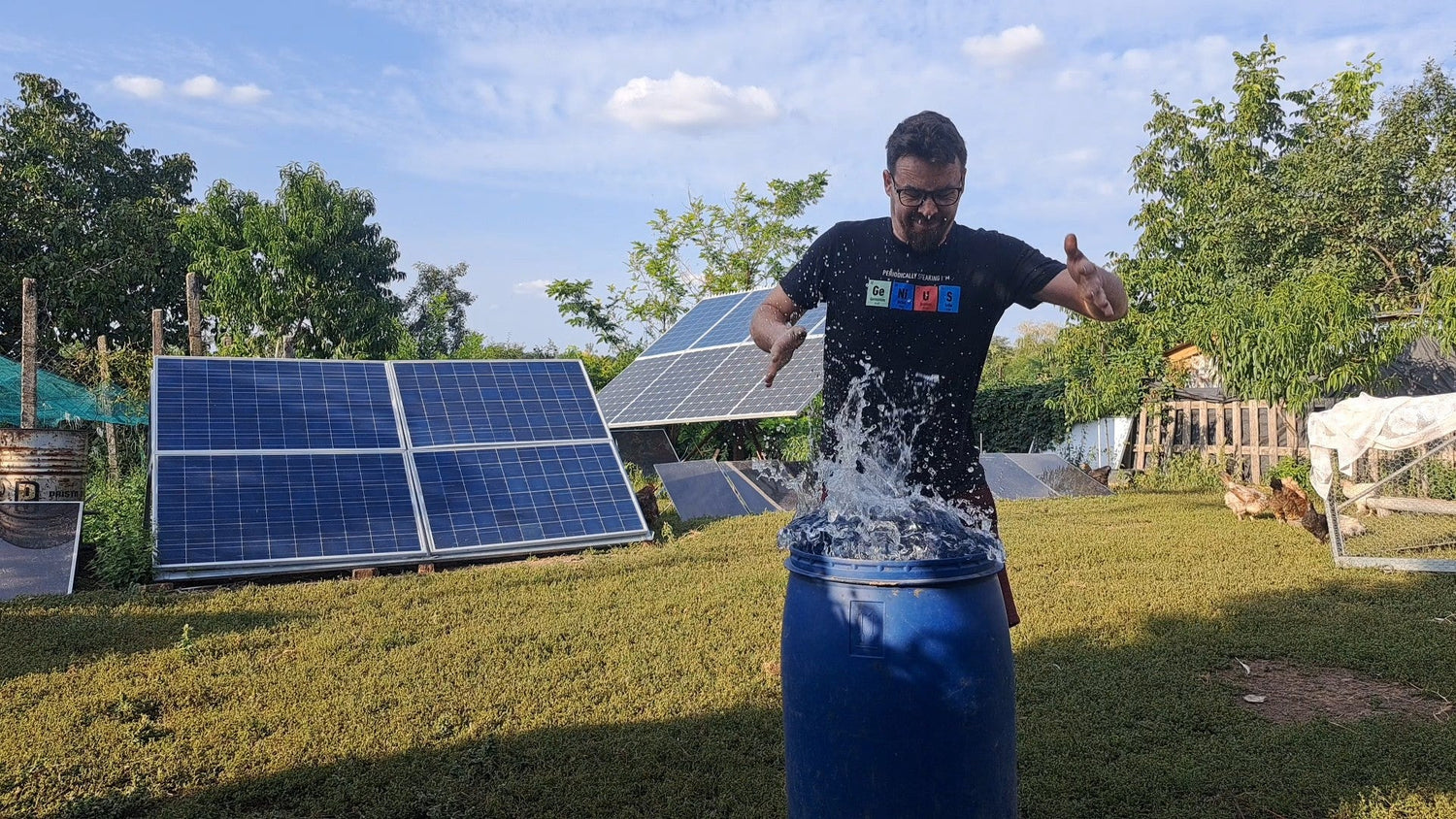With the increasing frequency of power outages worldwide due to natural disasters, aging infrastructure, and rising energy demand, the question of reliable backup power solutions has become crucial. Solar power storage systems, especially those with battery backups, have emerged as one of the most effective options for homeowners and businesses looking to maintain energy independence during outages. But how effective are these systems, and what advantages do they offer regarding energy security, cost savings, and environmental impact? In this article, we’ll explore how solar battery backup systems work, their benefits, and the considerations to consider when choosing one for your home or business.
1. How Solar Power Storage Systems Work During Outages
Solar power storage systems are composed of solar panels, a solar battery backup, and a connection to the grid. Solar panels capture sunlight and convert it into usable energy during daylight hours. In a grid-tied system, the generated electricity is used to power the home, and any excess energy produced can either be stored in a battery backup system or fed back into the electric grid. By participating in net metering programs, homeowners can earn credits for the excess energy sent to the grid, effectively lowering their utility bills while contributing to the overall power supply.
These solar power storage systems automatically switch to off-grid mode during a power outage. When the grid connection is interrupted, the battery backup system becomes the primary power source, ensuring that critical household functions remain operational. This automatic transition provides peace of mind for homeowners, as the system ensures essential appliances and devices continue to receive power without manual intervention. With a reliable solar battery backup, the home can function independently of the grid for a limited time, depending on the battery capacity and the household’s energy usage.
A well-designed solar backup power system is generally sized to meet a household’s essential energy needs during outages. Backup systems are often configured to prioritize critical loads, such as refrigerators, lighting, and security systems, which are crucial for maintaining comfort and safety. These flexible systems allow homeowners to customize their energy usage based on priority, making it possible to stay comfortable even during extended outages. Solar storage systems provide convenience and security by powering essential devices until the grid power is restored.

Finally, solar power storage systems with battery backups are precious in areas prone to frequent outages or for those who want to ensure higher energy independence. While utility crews work to restore grid power, the battery backup sustains the household, helping avoid disruptions to daily life. In addition to increasing resilience, these systems contribute to a more sustainable energy approach, reducing reliance on traditional power sources and minimizing the environmental impact of electricity generation.
2. Advantages of Solar Battery Backup Systems
Solar battery backup systems offer a variety of benefits, are precious in times of power outages, and play a crucial role in helping homeowners achieve energy independence. With a solar battery backup, you’re no longer entirely dependent on the electric grid, which can be unreliable or prone to interruptions. Instead, the system allows you to store energy produced by your solar panels, ensuring a continuous power supply during outages. This feature especially appeals to those who want a more self-sufficient energy solution, as it reduces reliance on traditional, fuel-based backup generators and mitigates the need for constant grid connectivity.
One of the most appealing aspects of solar battery backup systems is their ability to ensure a seamless transition during power disruptions. Unlike conventional generators that need manual activation or may take time to kick in, solar battery systems can disconnect from the grid and switch to stored energy instantly. This automatic switchover helps keep essential systems running without a noticeable delay, making it particularly advantageous for households where outages are frequent or prolonged. The seamless transition these systems provide keeps your home running smoothly and reduces the inconvenience and stress typically associated with power loss.
Solar battery backup systems also offer a clean, environmentally friendly energy storage source. Traditional generators, which rely on diesel or gas, emit pollutants and noise, impacting air quality and the environment. In contrast, solar battery systems, especially those utilizing lithium-ion technology, store energy without releasing emissions, providing a renewable alternative to fuel-based backups. Lithium-ion batteries are also highly efficient and can store substantial energy to ensure reliable performance for extended periods. This clean energy storage appeals to those who prioritize sustainable living and seek to reduce their carbon footprint while maintaining access to reliable power.
Over time, solar battery backup systems can lead to significant cost savings by allowing you to store excess energy generated by your solar panels. Instead of solely relying on grid electricity, especially during peak hours when rates are often higher, you can draw from your stored energy. This reduces your utility bills and avoids the high rates associated with peak demand. Additionally, in some regions, you may receive credits through net metering programs for the energy fed back to the grid, further enhancing your cost savings. By reducing grid dependence and capitalizing on stored solar energy, homeowners with battery backup systems can enjoy lower utility costs and increased financial savings over the long term.
3. Types of Solar Battery Storage Options
The type of battery technology used in a solar battery storage system significantly impacts its effectiveness, lifespan, and suitability for specific energy needs. As solar energy storage has gained traction, various battery types have emerged, each with unique characteristics that cater to different types of installations, from small residential setups to large commercial applications. The right battery technology depends on budget, energy requirements, maintenance preferences, and space constraints. Understanding the strengths and limitations of each option can help homeowners and businesses make informed decisions when choosing the best solar battery storage system for their needs.

Lithium-ion batteries are among the most popular and widely used options for solar battery backup systems due to their high energy density, long lifespan, and efficiency. These compact and lightweight batteries make it easier for installers to manage and integrate them into various systems. Lithium-ion batteries are known for their reliability and ability to deliver power quickly, crucial during power outages or peak demand periods. Their longevity and consistent performance make them well-suited for households with a stable power supply while minimizing maintenance. Despite being a higher upfront investment, lithium-ion batteries offer an excellent return on investment over time, especially in homes that experience frequent outages or prioritize energy independence.
On the other hand, lead-acid batteries are an older and more cost-effective technology, often chosen for their lower initial cost. However, their limitations make them less appealing for long-term or high-demand use. Lead-acid batteries generally have shorter lifespans and require more frequent maintenance, as they need to be kept at a specific charge level to prevent degradation. This type of battery is suitable for smaller or less frequently used solar systems, where the cost of a lithium-ion battery might not be justifiable. However, there may be better options than lead-acid batteries for households that experience frequent outages. There may be better options than outages or require them due to their reduced lifespan and higher maintenance demands, which can offset their initial affordability.
Flow batteries represent an innovative and relatively new technology in solar energy storage. They store energy in liquid electrolytes between two chambers, allowing for scalable and long-duration energy storage. Flow batteries are precious in commercial and industrial settings where large amounts of energy storage are needed, as they can hold a charge for extended periods and handle frequent charging and discharging cycles without significant wear. While flow batteries are less widely adopted in residential solar systems due to their larger size and higher upfront costs, they are gaining interest as energy storage solutions for applications requiring substantial power, such as factories or other high-demand operations. Their scalability and low maintenance make them a promising option for future energy storage needs.
In summary, each solar battery storage option has distinct advantages and disadvantages. Lithium-ion batteries are ideal for residential use, offering high energy density and low maintenance but at a higher cost. Lead-acid batteries are more affordable but require regular maintenance and have shorter lifespans, making them more suitable for small-scale applications. Though still emerging in the market, flow batteries show great potential for large-scale energy storage and are particularly suited to commercial settings where long-duration storage is needed. As battery technology continues to evolve, the range of options available for solar energy storage will likely expand, providing even more tailored solutions for various energy needs.
4. Factors to Consider When Choosing a Solar Backup System
When choosing a solar power storage system for backup, it’s essential to consider several factors to ensure that the setup will meet your needs effectively during power outages. One of the first steps is assessing your energy needs and system size. This involves identifying the appliances and devices you consider essential during an outage, such as refrigerators, lighting, heating or cooling systems, and possibly medical devices, if needed. A professional solar installer can assist in calculating your energy consumption during emergencies and designing a system that is neither too large (leading to unnecessary costs) nor too small (risking insufficient power supply). By right-sizing your system based on essential energy requirements, you can create an efficient backup solution tailored to your household's needs, ensuring that you’re neither overspending nor under-prepared.
Another important consideration is your system’s connection to the grid. Most solar power storage setups are designed to work within grid-tied systems, allowing you to use both solar energy and grid electricity. This setup offers flexibility, as you can rely on solar power during sunny days and grid power when needed, particularly at night or on cloudy days. However, a hybrid system combining grid-tied and battery-based storage can be precious in areas prone to frequent outages. Hybrid systems ensure that you always have access to backup power, even when the grid is down, making them an ideal solution for homeowners who face recurrent power interruptions and want to maintain more excellent reliability and energy independence.
The system’s efficiency and charging capabilities are also crucial to evaluate. High-efficiency solar battery systems are designed to recharge quickly, which can be a significant advantage if power outages happen in quick succession or are prolonged. A system that can recharge within hours on a sunny day provides a continuous and dependable power source, allowing you to regain backup power rapidly in case of extended disruptions. Modern solar batteries, particularly lithium-ion models, are capable of high charging efficiency and can hold substantial amounts of energy, ensuring your backup power is always ready when needed. Fast recharging capabilities are precious in regions with unpredictable weather or frequent outages, as they reduce downtime and maximize the usability of stored solar energy.
Lastly, consider the long-term investment associated with a solar battery backup system. While the upfront cost of installing solar panels and a storage system can be significant, the long-term benefits frequently justify the expense. Over time, a solar backup system can save considerable energy by reducing reliance on the grid, especially during peak rate hours. Additionally, many regions offer tax incentives or rebates for renewable energy installations, lowering the financial burden. Beyond financial savings, a solar backup system provides peace of mind, allowing for greater energy independence, reduced exposure to rising utility rates, and a reliable power supply during emergencies. For many homeowners, these long-term gains make a solar backup system a worthwhile investment that enhances energy security and contributes positively to sustainable living.
5. Practical Applications and Real-Life Effectiveness of Solar Backup Power
Solar battery systems are particularly effective in specific scenarios:
Residential Applications: For households that experience frequent outages, a backup system with sufficient capacity can keep critical appliances running, provide light and power security systems, and even maintain internet connectivity, enhancing quality of life and safety.
Remote and Off-Grid Locations: Solar panels and battery systems provide an ideal solution in areas where grid power is unreliable or nonexistent. Off-grid setups with robust battery storage can fully power a home, making it possible to live entirely independently from the electric grid.
Business Continuity: Businesses with critical operations that cannot afford downtime, such as medical offices or food storage facilities, greatly benefit from solar battery backup. A well-designed battery system ensures continuity of operations, protects perishable inventory and maintains vital systems until utility power is restored.
6. Future of Solar Backup Power Storage Systems
The future of solar backup power storage systems looks promising as technology advances, making these systems more efficient and accessible to a broader audience. Recent developments in battery technology, particularly lithium-ion batteries, have significantly improved storage capacity, lifespan, and performance. This progress has led to more reliable and durable storage options for residential and commercial applications. As these advancements continue, we can expect solar backup systems to become a common feature in homes and businesses, offering sustainable and consistent energy storage solutions that cater to various energy needs.
Moreover, the affordability of solar storage systems is improving as production scales up and manufacturing costs decrease. Government incentives and tax breaks for renewable energy adoption are also helping make these systems more financially accessible. As costs decline and awareness grows, more homeowners and businesses can adopt solar backup storage systems without facing prohibitive expenses. This increasing affordability will drive widespread adoption, making clean and renewable energy storage a viable option for individuals and businesses, leading to greater energy independence and sustainability.

The role of solar power storage systems in supporting grid stability is also expected to grow. Utility companies worldwide face challenges in providing consistent, uninterrupted power due to aging infrastructure, extreme weather events, and increasing demand. Solar backup systems, particularly grid-tied ones with advanced storage capabilities, can help stabilize the power supply during peak demand or outages. By feeding stored energy back to the grid when needed, these systems can alleviate stress on the grid, contributing to overall grid resilience and reducing the likelihood of blackouts.
As these systems become more prevalent, we will likely see a shift in energy consumption habits, with individuals and businesses relying more on their power generation and storage. This shift reduces dependency on traditional utility companies and supports a more sustainable energy landscape by lowering reliance on fossil fuels. The future of solar backup power storage systems is a step toward cleaner, more resilient energy systems, helping shape a more sustainable and reliable power infrastructure for future generations.
Final Thoughts
Solar power storage systems with battery backups provide an effective, eco-friendly solution to the challenge of power outages. With benefits like energy independence, seamless operation, and long-term cost savings, these systems offer a reliable and sustainable way to keep your home or business powered during utility failures. By choosing the right system and working with a qualified solar installer, you can ensure you’re well-prepared for any future outages, reducing your reliance on the grid and contributing to a more resilient and sustainable energy future.





